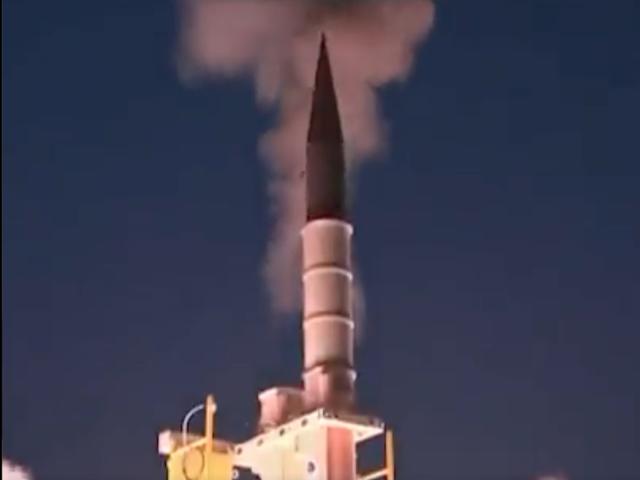Several countries have expressed interest in purchasing Israel's Arrow air defense systems following their successful role in thwarting a massive missile and drone attack by Iran last month, according to Boaz Levy, CEO of Israel Aerospace Industries (IAI), the developer of the Arrow system.
The unprecedented attack, which took place overnight between April 13 and 14, involved over 100 ballistic missiles launched by Iran. Israel's multi-tiered defense shield, bolstered by allied support, successfully intercepted nearly 99% of the more than 300 projectiles, resulting in minimal damage on the ground. The Arrow system played a pivotal role in these defenses, as stated by the Israeli Air Force.
International Interest and Future Deals
The impressive performance of the Arrow system has sparked significant international interest, with multiple countries approaching IAI for more information. "I'm very optimistic that there will be more deals for the Arrow system, especially after the very special demonstration we did," Levy told Reuters. Although Levy did not disclose the names of these countries due to the preliminary nature of the discussions, the Arrow system's reputation is clearly on the rise.
Israel's Arrow system that repelled Iran's missiles ignites interesthttps://t.co/KEufPf7Z3X
— ABS-CBN News (@ABSCBNNews) May 17, 2024
The United States is a key partner in the Arrow project, with Boeing involved in its production. This partnership enhances the system's credibility and appeal to potential buyers.
The Arrow Defense System
The Arrow system represents the upper layer of Israel's missile defenses. It works in conjunction with the Iron Dome, which intercepts short-range threats like mortars and rockets, and David's Sling, which addresses mid-range threats. The Arrow-2, a long-standing component of Israel's defenses, intercepts ballistic missiles at long range, while the newer Arrow-3 targets missiles outside Earth's atmosphere.
Live update: After Israel’s Arrow repelled Iran’s missiles, several countries interested in system https://t.co/30rStvNmCH
— ToI ALERTS (@TOIAlerts) May 16, 2024
Strategic Significance and Recent Developments
Iran remains the primary threat to Israel, with its extensive missile arsenal, some capable of reaching distances up to 2,000 kilometers. This threat underscores the importance of advanced defense systems like Arrow.
In a significant development, Israel, with U.S. approval, agreed last year to sell the Arrow-3 system to Germany in a landmark $3.5 billion deal, marking Israel's largest-ever defense sale. This agreement aligns with increased defense spending by Germany and its European neighbors in response to Russia's invasion of Ukraine. The negotiation and finalization of this deal took almost two years, reflecting the complexity and importance of such transactions. Future deals are expected to follow a similar timeline and will also require U.S. approval.
Winning - And doing it ironically.
— The Judean (@TheJudean) May 9, 2024
In November 2023, Germany signed a deal with Israel for the Arrow-3 defensive system.
Today, the week Israel commemorates Holocaust remembrance day, German officials are in Israel to discuss its production.https://t.co/ptE0tfv1EM
Cost and Production
While the Iron Dome interceptors are estimated to cost around $50,000 each, the Arrow interceptors are significantly more expensive, costing over a million dollars each. Levy emphasized that despite this high cost, the Arrow system is competitively priced compared to similar interceptors worldwide.
The recent Iranian attack has prompted IAI to not only increase production of existing Arrow systems but also accelerate the development of the next-generation Arrow-4, which will eventually replace the Arrow-2. "It's in a very accelerated process towards the start of production. And we are doing this in full coordination with the security establishment here in Israel and the Missile Defense Agency in the United States," Levy explained.
#Watch: Israel's Arrow missile defense system launches to intercept a Houthi ballistic missile earlier this morning. https://t.co/8IkdCcEpmF pic.twitter.com/yDrHH9KTLF
— Open Source Intel (@Osint613) February 22, 2024
Conclusion
The successful defense against Iran's missile attack has solidified the Arrow system's status as a critical component of Israel's national security and has generated considerable international interest. As countries seek to enhance their defense capabilities in an increasingly volatile global landscape, Israel's Arrow air defense systems are poised to become a key asset for nations around the world.


